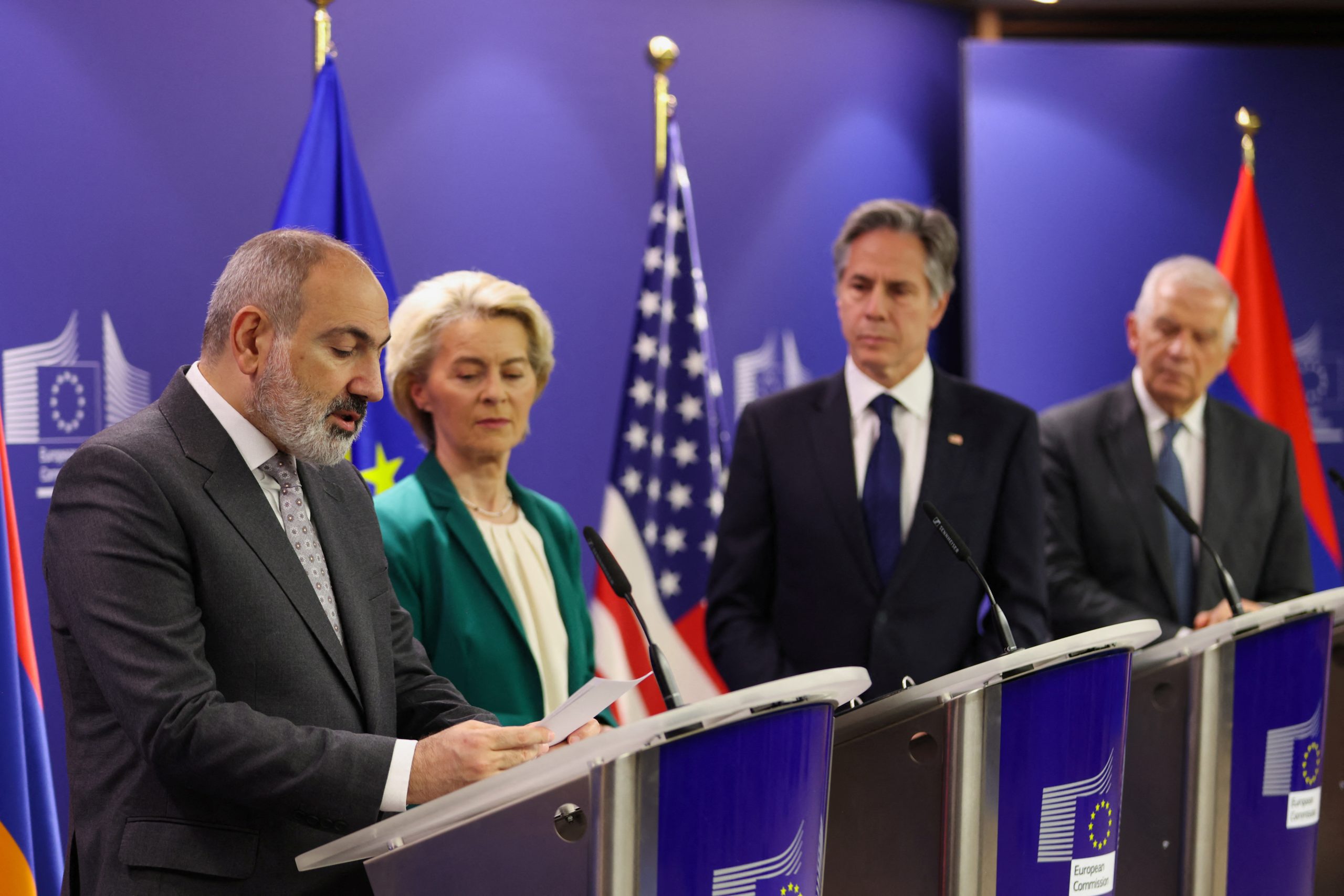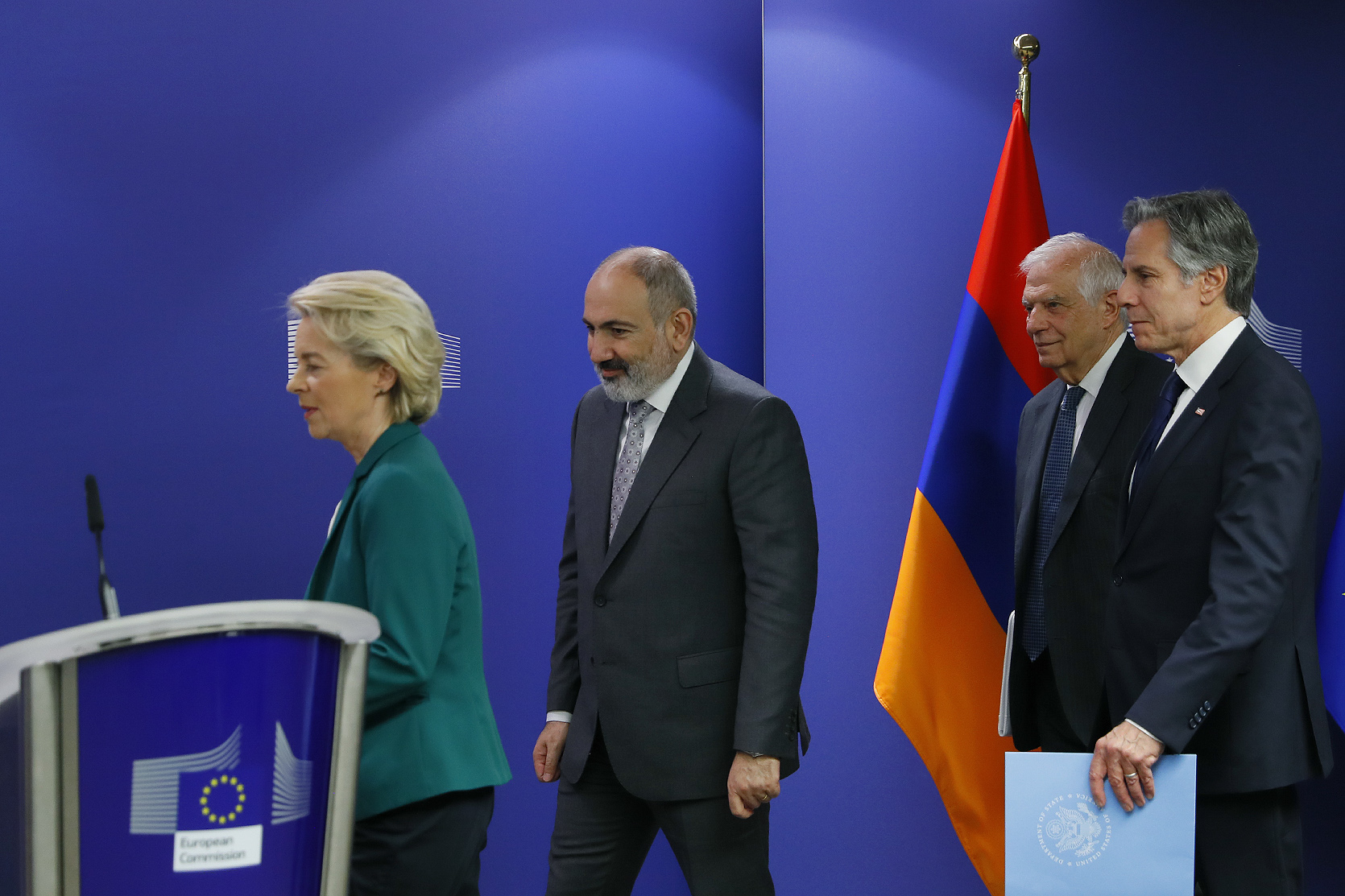Armenia takes first steps toward EU membership: Government approves Eurovote plan
Armenia prepares for EU accession vote
The Armenian government, during its first session of 2025, approved the draft law “On initiating the process of EU membership.” The proposal involves holding a referendum on Armenia‘s accession to the European Union. The initiative for the “Euroreferendum” (or Eurovote) was put forward by four extra-parliamentary forces united under the Democratic Forces Platform. They believe it is essential to chart a course toward European integration—and to do so as quickly as possible.
“In my opinion, this is neither a reason for particular enthusiasm nor for concern. With this step, we emphasize the availability of tools to exercise Armenia’s sovereign rights and demonstrate that we are pursuing an independent foreign policy based on our national interests,” said Prime Minister Nikol Pashinyan.
According to him, the government does not object to starting this process. However, he clarified that this does not yet signify the beginning of Armenia’s accession to the European Union. He stressed that “a decision on this matter cannot be made at the level of law or even by government resolution.” It must be made by the citizens of Armenia through a referendum.
At the end of last year, a proposal for a referendum on Armenia’s EU membership was submitted to the National Assembly. To bring this initiative to parliament, the “Democratic Forces Platform” organized a signature collection campaign, securing support from 60,000 citizens. The Central Electoral Commission validated 52,000 of these signatures.
- Opinion: ‘EU expects assurances from Armenia that Georgia failed to provide’
- Armenia in 2024: Choosing between Europe and Russia, skepticism, and fight for future
- Opinion: Armenia faces challenge if EU observers leave without security guarantees
“Armenia-EU relations are developing intensively and dynamically”
The draft was presented to cabinet members by Armenia’s Foreign Minister, Ararat Mirzoyan. He emphasized that relations with the EU have developed intensively and dynamically over the past two years, with cooperation enriched by substantive content across various areas—from politics and economics to security:
“The European Union has repeatedly provided strong political support for democracy in Armenia. The EU has expressed its readiness and is actively involved in ensuring a secure environment around Armenia. I am referring to the deployment of the civilian monitoring mission [on the border with Azerbaijan].”
The minister stated that the government’s decision should be based on these factors as well as the “democratic traditions, strong democratic institutions, a free and competitive environment, a modern economy, and advanced, developed science” that EU member states possess. He also recalled the Prime Minister’s speech at the European Parliament in October 2023, where Nikol Pashinyan declared that Armenia is prepared to be as close to the European Union as the EU deems possible.
“We have already seen signs of this possibility. I refer to the start of visa liberalization and several other tools that are already being discussed or implemented between us and the European Union. Based on these circumstances, we propose expressing a positive stance,” he stated before the vote on the draft.
“Significant changes occurred”
According to Nikol Pashinyan, relations between Armenia and the European Union have undergone significant changes. Among these, he highlighted the EU’s decision to provide Armenia with support through the European Peace Facility.
“In terms of volume and scale, this financial and technical assistance is not yet substantial, but politically, it is a highly significant decision.”
The European Peace Facility, established in 2021, is a tool through which Brussels provides resources to non-EU countries to enhance their defense capabilities, prevent conflicts, and strengthen peace. Through this mechanism, the EU has previously supported Ukraine, Georgia, and Moldova.
The Prime Minister also addressed the start of negotiations on visa liberalization. He noted that this issue has been on Armenia’s agenda for decades:
“And now, this atmosphere has naturally created expectations among Armenian citizens that it will finally receive the fastest and most effective resolution.”
In this context, Pashinyan also mentioned challenges, particularly the long wait times for Armenian citizens to obtain visas from EU embassies. He noted that in recent years, the volume of passenger traffic between Armenia and European countries has increased several-fold. Consequently, long queues have formed at embassies for document submissions. The Foreign Ministry is currently working to resolve this issue.
Nevertheless, the Armenian Prime Minister viewed the growth in passenger traffic positively, attributing it to aviation sector reforms and improving living standards among citizens.
“The only path to EU membership is a referendum”
Commenting on the adoption of the law on holding a “Euroreferendum,” Pashinyan emphasized the importance of understanding the essence and context of the issue. He first highlighted the significance of events leading up to the initiative, including his address to the European Parliament in the autumn of 2023 and the unprecedented Armenia-U.S.-EU trilateral meeting in the spring of 2024. He then clarified that the government’s positive stance does not yet equate to Armenia’s membership in the EU.
Pashinyan explained that Armenia can begin the process of joining the EU only if, through a constitutionally mandated procedure, a certain number of referendum participants vote “yes.”
After that, Armenia and the EU would need to start discussions and jointly develop a roadmap. According to the Prime Minister, until that point, there is little else the Armenian authorities can do.
However, Foreign Minister Ararat Mirzoyan believes that some steps can be taken before the referendum:
“Nothing prevents us from aligning our legislation and standards in various fields with those established by the EU. This way, when the moment arrives, and if such a decision is made by the citizens of Armenia, we can go through the process more easily and quickly.”
Armenia prepares for EU accession vote





















